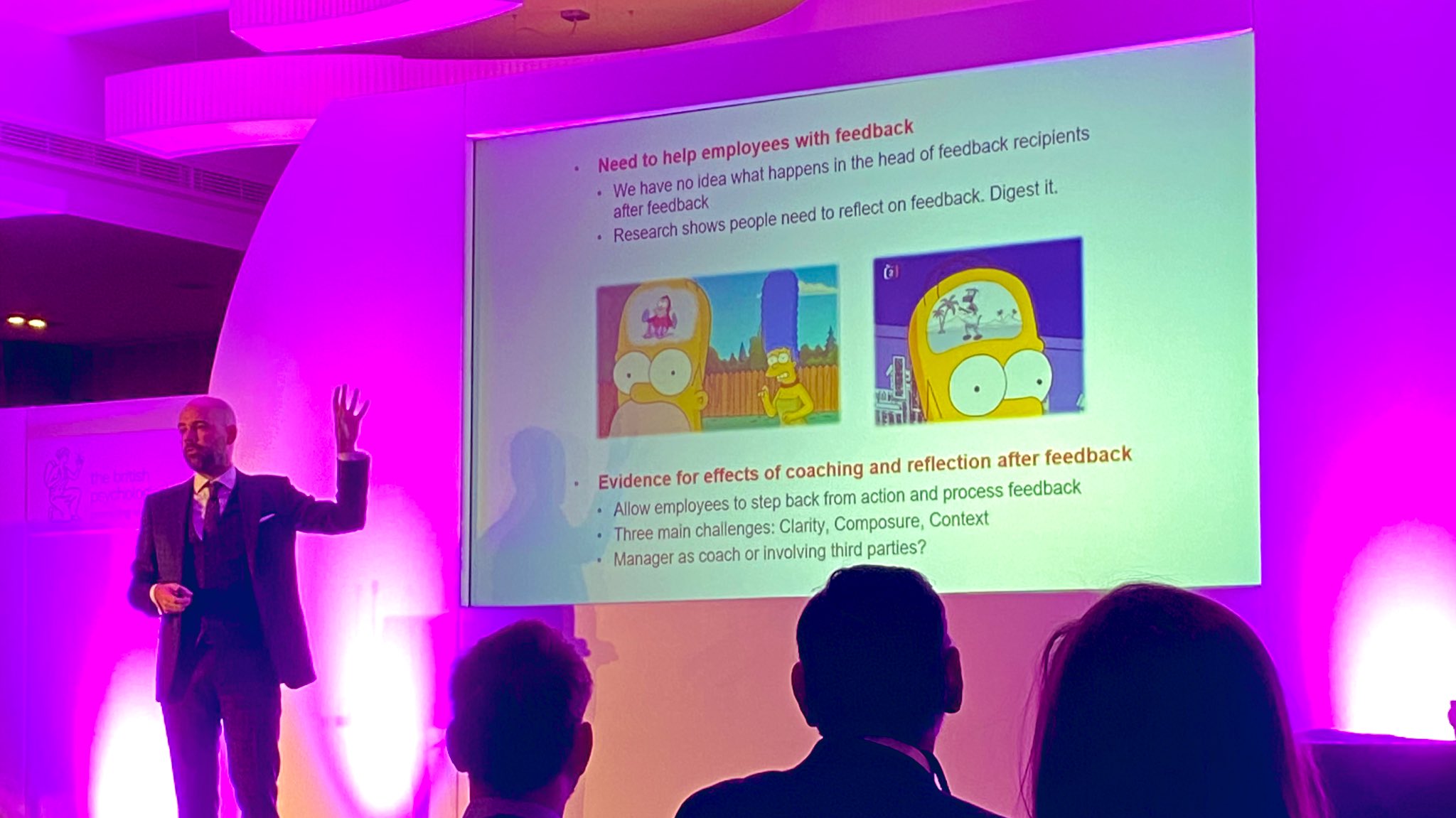This month we are exploring the conditions that allow people to perform better at work and which help them to thrive! Following our main article regarding the importance of focus, we wanted to share with you what we learned from the Division of Occupational Psychology 2020 Conference that can enrich everyone’s understanding of how performance can be optimised. Professor Frederik Anseel gave an opening keynote speech at the DOP Conference titled “What evidence do we have for redesigning performance management systems.” His talk got us thinking about current performance management practices and we would like to share with you what we learnt.
Feedback and performance appraisals are favoured by HR practitioners which ensures their continued use across organisations. Why is this? It’s because of the long-standing idea that feedback is key to motivate and enhance other’s performance. However, latest research may suggest otherwise…
Being at the receiving end of feedback stimulates our thinking, for example “Is this personal?” or “What do people think of me?”. Consequently, people stop thinking about the content of the feedback and what it is referring to. This in turn affects individuals’ self-enhancement motives i.e. talking about ourselves, how we think about ourselves and the impact of our self-image. For example, those who have an unrealistically positive self-image during a threatening situation will not process the feedback properly. This is clearly detrimental and renders the feedback useless as they do not absorb the information.
So, what can we do? Instead of focusing on performance feedback per se, we need to create a psychologically safe environment, which is more likely to create a self-improvement mindset i.e. where individuals consider development needs. Therefore, when conducting performance appraisals and reviews it is important to create a safe and trusting environment for the individual to get the most out of the session.
 Professor Frederik Anseel at the Division of Occupational Psychology Conference 2020 during the delivery of his keynote speech.
Professor Frederik Anseel at the Division of Occupational Psychology Conference 2020 during the delivery of his keynote speech.
Some large corporations have gone the other way and scrapped the appraisal altogether e.g. Microsoft and Dell. There is a new approach whereby managers have an informal “check-in” with colleagues, and they are encouraged to discuss how they feel without the use of rating scales. But what led these companies to get rid of an age-old practise?
Criticism of performance reviews:
- It often evokes negative reactions in both managers and employees.
- They are time consuming and bureaucratic. More research is needed about the potential damage they can cause.
- Ratings are inaccurate and some managers use ratings in their heads. This causes problems with fairness and whether it is an accurate measure of someone’s performance.
- It does not always suit the organisation’s strategy.
- Feedback is often too infrequent and it is no longer appropriate to occur once a year. However, a balance needs to be found between timely feedback but without it being too frequent and subsequently detrimental.
What do we need to do going forward?
1. We must coach and help people to digest feedback positively and effectively and to integrate this learning into their behaviour.
2. Encourage feedback seeking behaviour from individuals, there is a positive relationship between this and performance. Therefore, organisations need to create a culture which supports open feedback in a safe and trusting space. This happens in a continuous improvement culture.
3. We must research the micro processes (the component parts) that make up good feedback and consider the impact of this on performance.
If you would like help to create a positive high performing culture in your organisation, find more about the services we offer here or get in touch with us today we’d love to hear from you.